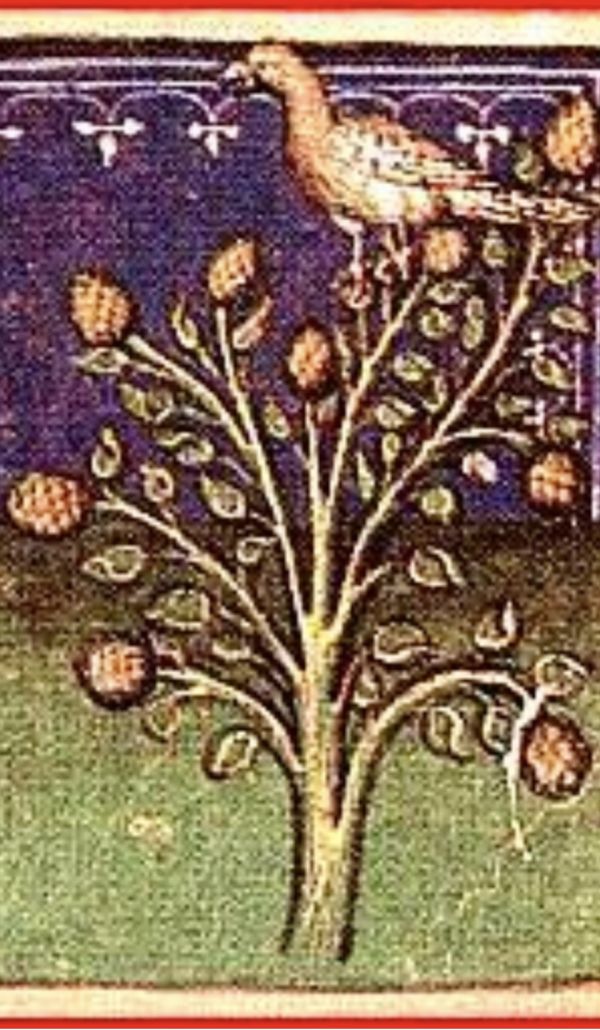From below, not from a summit
(Mk 4: 26-34)
Here we are introduced to a different mentality, to a new Family, to another Kingdom, not very "elevated"; indeed, completely reversed. Different from that expected on a mighty mountain (Ez 17:22).
It will not be portrayed by the majesty of the cedar of Lebanon [which once covered the mountain slopes of the Near East] but by a simple shrub in the kitchen garden (Mk 4:32a).
And the very origins of this new reality will not come from the top of a lofty stem, but from a small seed, simply planted on the ground.
Little grain like the others. Nothing remarkable in itself. Which develops horizontally, rather (v.32b).
How much gas must be given to accelerate the spread of the Kingdom?
According to Jesus, we must wait for everyone to meet himself, without neuroses.
A proposal that knows no borders: it’s aimed at everyone. It is enough to let the grain do its normal things - thus integrating the energies; giving space, even giving way.
The Seed grows on its own, intertwined with the soil and climate, yet according to a deep individual character.
He escapes cerebral explanations: «How, it itself does not know» (v.27).
After sowing, the author of the gesture resumes normal life.
Letting it go, the little hidden grain walks its way, to the end.
This is the evolutionary factor.
No farmer tramples on his field, nor investigates what happens (bothering the seedlings): development, growth and maturation are in themselves guaranteed.
Anyone who wants to enter would disturb the sprouts.
Whoever dug to control the evolution of little bud that is intertwining its roots with the ground, would ruin everything.
Our sacred identity is inextricably linked to personal singularity: it entangles with an unrepeatable sensitivity and vicissitude.
It’s the darkness, the silence, the waiting, that make tender shoots sprout, in their uniqueness and authenticity.
They would only be harmed by the one who wanted to interfere, modifying, overlapping other patterns and trends - never conforming to the realities in spontaneous singular development.
Beware of the hastiness of those who immediately want a result other than to be ourselves in relation to the innate essence and personal mission, which emanate from the hidden Source.
Time of love is not immediate: it takes place along a path, whose periods cannot be marked by any hasty plan - only irritating - if not by the Spirit, so that we can manifest the intrinsic unprecedented.
No one can bother such exceptional wealth, which arises and develops «automatically» (v.28), so that we are enabled to give birth to the inner world, the quintessence, the Jesus who hatches in heart; not others.
«Laying hold of the scythe» (v.29) means that at this point the soul is awakened for the Kingdom, ready to ‘give life’ to itself and to brethren, overflowing its wholeness to others, even distant or wandering like birds (v.32).
Together, a Church that - without thinking too much about "how it should be" - convinces all those in need of shelter from the "heat".
And Seed can be transmitted anywhere by the same «volatiles» that settle there even just enough for each one to take flight again.
‘Parables of the kingdom’ in Mt 13 and here in Mk 4 do not narrate a solemn, epochal, majestic reality that stubborns and imposes itself.
Rather, the new kingdom will be comparable to a common shrub, which grows modestly - silent, in the home garden (v.32).
As if to say: we evolve into tiny signs - nothing extraordinary - but we are people, not facsimiles.
Thus we announce Paradise.
[Friday 3rd wk. in O.T. January 31, 2025]












